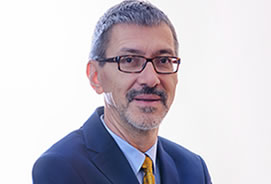I cannot remember a time when there was so much political change in the world. Now, that could be because I don’t remember change taking place before (its age, you know), or because of theres much more information available, or because as I get older I am more aware of such things or, of course, that there is, actually, more change taking place. Africas a big continent, with lots of countries, so its inevitable that change would be taking place here, but again, this is much more than what was referred to in Harold Macmillans 1960 Wind of Change speech to the South African parliament in Cape Town. Then, he was talking about the rapid shift of the African countries from European rule to independence; I’m talking about equally rapid changes in the political environment in several countries.
The trend seems to be most prevalent, at least for now, in southern Africa. I’m talking, of course, about Robert Mugabe in Zimbabwe, Jacob Zuma in South Africa and Jose dos Santos in Angola, all of whom have relinquished power, willingly or not, in a peaceful transition. But there was also the recent and quite sudden resignation of Ethiopian Prime Minister Hailemariam Desalegn, the defeat of Yahya Jammeh in The Gambia and John Mahama in Ghana, both incumbent presidents, and a short while ago the departure of Ellen Sirleaf in Liberia.
According to Wikipedia, 16 African countries will have presidential and/or general elections in 2018, and a further 15 in 2019. Elections are very important for the hospitality industry in Africa, as political power tends to be more centralised than in more mature democracies, and major shifts are not uncommon. Investors those who stay in hotels, and those who invest in them need stability, which breeds confidence, and that means economic growth, a virtuous circle from which hotel owners benefit through increased demand.
Sometimes the big picture in Africa seems quite daunting, particularly the challenges the trillions of dollars that the World Bank says is needed to make up for the infrastructure deficit, the double-digit growth rates required to catch up after years of economic malaise, and the sheer size of countries such as Nigeria, the DRC and others. The temptation is to try and ignore the macro, and focus on the micro where, individually, we can make a difference. At the project level, that means creating jobs, increasing skill levels, assisting the extended family through the multiplier effect of employee wages, and their spend in the economy. But we cant do all that in isolation of that big picture.
What will be the impact of the change of regime down in Zimbabwe and South Africa? Will those economies grow faster due to newly-favourable politics, and therefore become more attractive to investors than before? There’s only so much money to go around, and we might find that those countries which still have a way to go to stabilise both their economy and their politics lose out in the race to attract investment. Sure, Nigeria has been highly attractive in recent years, dubbed the retail play by South African developers who hastened to build shopping malls to cater to the huge population. But now, with a depressed economy and with uncertain politics (elections are to be held in early 2019), the view is that there’s an oversupply of modern malls so will those developers refocus on southern Africa, where there’s new-found confidence? And in the hotel space, Zimbabwe, in particular, is perceived to be a tourism hotspot, and investors are keen to (re) enter the country, having been deterred for many years by the indigenisation policies of Mugabe’s regime; we could see a massive increase in hotel investment if the political environment is conducive.
Here in Nigeria, we are hopeful for a return to high growth figures, but that hope is somewhat subdued by the uncertainty regarding the upcoming elections. Its the same in Cote d’Ivoire, with elections scheduled for 2019 the economy there is going gangbusters, but what will happen during and after the elections?
Happily, the elections in Ghana went off very smoothly in late 2016, since when the economy has raced ahead, such that the forecast for 2018 is for the highest growth rate in Africa. The change of leadership there has brought a surge in confidence, both from within the country and externally, and Ghana has proved that democracy can work. The hotel industry in West Africa needs stable politics and stable economic growth, not the stop-start that we have experienced in recent decades. Let’s hope that the wind of change taking place almost 60 years after that described by Harold Macmillan will result in continent-wide stability.
Trevor Ward is the CEO of W Hospitality
Business a.m.’s comment pages are a place for thought-provoking views and debate. These views are not necessarily shared by Business a.m.











